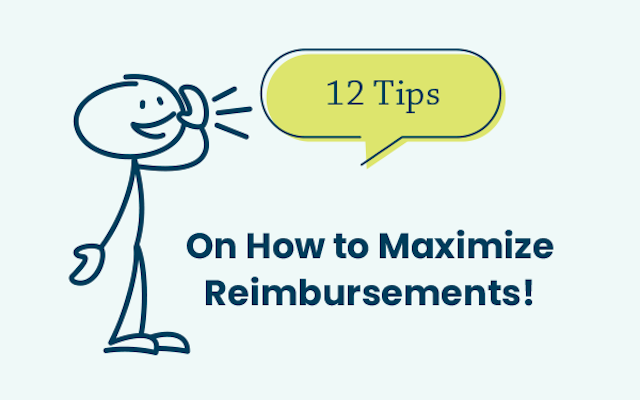The relationship between a specialist and GP can be amazingly positive or incredibly tense depending on how it is managed and the communication between parties. Communication is a two-way street, and both sides can and do fail. The goal is to create and sustain a mutually respectful relationship that ultimately benefits the patient. Over the years, I have experienced both great and difficult specialist relationships. In many cases, I can look back and realize that in almost every case I was partially responsible for the failure.
Here are some suggestions for strengthening this important relationship:
General Practitioners
- Refer early and often. Know your limits and when a specialist will better serve your client.
- Communicate EXACTLY why you are making the referral, and what you hope can be accomplished; this is the only way to ensure that your patient will receive what you envision.
- Attach YOUR treatment plan to the referral, whenever possible, it will help the specialist know what you and your team are doing and help support your plan for the patient.
- Reach out and connect through more than just an inter-office referral, get on a first name basis, have each other’s cell phones. Texting can be amazingly useful for two busy doctors.
- Make sure every team memberknows who you refer to and why.
- Inform the specialist when complaints arise. This is so THEY know what the problems are to potentially fix, you would want the same treatment.
- Fix random problems that may occur after the visit to your specialist, like crowns coming off during extractions, or replacing a crown for a failed implant. Situations like this can happen both ways. Don’t immediately judge.
- Understand specialists must deal with the worst patients and cases, try not to send them only the messy cases. For example, if you are sending out a difficult extraction/graft, let them do the implant too (assuming they will use a system you like and do it well).
- TALK to the specialist about concerns you’ve heard and seen before you switch providers. You might be surprised that many problems do not originate from the doctor. I can’t keep count of the number of problems that I’ve learned were actually caused by the specialists’ team, and not the doctor.
Specialists
- SUPPORT your GP. One of the best specialists I’ve worked with over the years made sure to tell every patient we referred to him: “Dr. C is an amazing dentist, I see so many great patients from him, you are lucky you found him.” When a patient comes back to the GP with this level of confidence, you can be assured they will send you more referrals.
- NEVER undermine the GP. This is such a common problem, whether it is blatant or passive, intended or unintended. GPs are referring for a reason, often because they cannot treat or don’t know how to diagnose a specific problem. That is the entire reason they are being referred in the first place. A complaint voiced by a patient like, “Why did the GP not tell me about X problem?” should be handled in a supportive way. Respond by saying, “They did not have the amount of information I do today.” or “They wanted confirmation of the diagnosis before unnecessarily alarming you with the problem.”
- Build a relationship with the GP’s TEAM. Team often has more control over what patients are told about specialists than the GP. Make sure they know and like you as well. The best specialist I’ve worked with started the relationship by taking his team and my team out for happy hour. This specialist literally “stole” us from our previous specialist because everyone on the two teams developed a much stronger relationship.
- Communicate with your GP. What do they like and not like? What are their preferences for cases? Do they prefer text, email, or phone calls? What was the outcome? Communication is key. When I refer a patient to a specialist, I don’t like wondering what happened with the case. If the patient didn’t schedule an appointment, let them know. Often the GP can help encourage and support the patient going to you.
- Train the GP’s team. You are a specialist for a reason; teach them. Often, when the GP’s team really understands what to look for and what types of cases would benefit from your attention, they will begin to see more situations that can benefit from a referral.
- Understand that as a specialist you will get the more difficult cases and needy patients. This is part of what it means to become a specialist, embrace it.
- Support the GP when they desire to learn more and pick up a new skill. It will likely lead to more referrals. My orthodontist supported me when I started Invisalign (many orthodontists won’t). After I started doing aligners, I ended up referring MORE patients to the orthodontist. The extra training meant I was more knowledgeable about recognizing cases; and therefore, diagnosed the need for the referral more often.
- Understand that being a GP is one of the HARDEST specialties in dentistry. GPs must attempt to recognize EVERYTHING, which means things will get missed; while specialists are able to focus on one specific aspect of dentistry.
Together
At the end of the day, I think both GPs and specialists recognize we need each other. Each of us has an important role to play in serving our patients and our communities.
- This only works with mutual respect and support
- Communication is key on both sides
- Always support your counterpart in all conversations, until you learn something to the contrary.
- Realize we are all human and problems happens. No one is perfect on either side.
- Understand that word choice matters! It doesn't matter what we think so much as what comes out of our mouth and our body language.
Relationships are two sided, and rarely end purely due to one side. When a problem arises, set aside criticism, and ask yourself this question:
“Could I have contributed to the problem and what can I fix in myself or my practice before I look at my counterpart?”
There is a ton of power in a great interdisciplinary team. Nurture it and both your team and your patients will be better for it.

For every problem dental insurance creates within an office, there is a solution. We at the Dental Insurance Guy are here to provide those solutions. We find ways to help maximize the dental insurance benefits your patients are paying for, while at the same time making it less problematic for you and your team!
Are you ready to significantly reduce your dental insurance frustrations? Would you like to achieve higher reimbursements, fewer denials, and happier patients? Check out Dental Insurance Guy, a membership community led by Dr. Travis Campbell. Membership provides you and your team with 24/7 access to up-to-date information about all aspects of today's dental insurance landscape. Get access to insurance basics, live virtual events, on-demand CE, direct guidance, resources and more.
 By:
By: 



